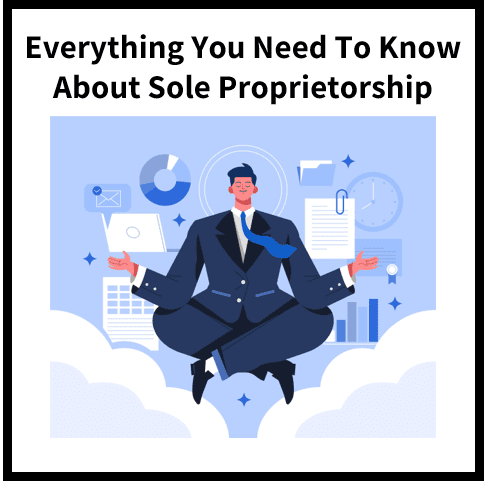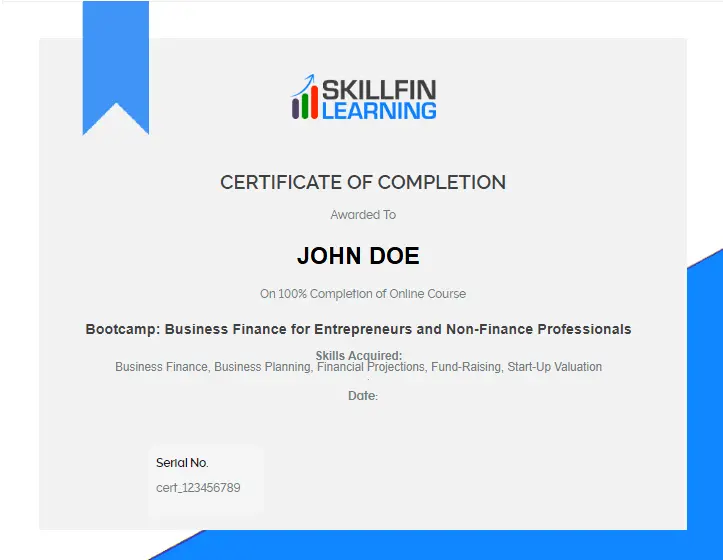If you’re considering starting your own business, it’s important to know your options. There are several different types of businesses you can operate, each with its own set of advantages and disadvantages. Sole proprietorship is one such business structure that doesn’t require you to file any special paperwork or register with the state.
You can simply adopt this type of business structure by registering as a sole proprietor in your state and federal tax records. It’s a good option for many new entrepreneurs who want to start their business without the initial time and costs associated with forming an LLC or corporation.
However, before diving into operating your business as a sole proprietorship, there are some pros and cons you should understand first.
What is a Sole Proprietorship?
A sole proprietorship is a type of business where there is only one owner. It is one of the simplest business structures to create, because there is no need to register with any government or regulatory agency. There are no shareholders or investors, so it is a type of business that is “traditionally unincorporated”. The owner of a sole proprietorship is personally responsible for all the debts and obligations of the business.
That’s why it’s important to have adequate insurance to protect both your personal assets and your business’s assets as well. A sole proprietorship is also the simplest business structure from a tax perspective. Since you report all of your business’s profits and losses on your personal income tax return, there are no complicated IRS forms to file.
Advantages of Sole Proprietorship
– No formal registration required: While the other business structures require you to register with the state and federal government, a sole proprietorship is a type of business that you don’t need to register. This can be an advantage if you want to get started quickly. –
No initial investment or start-up costs: Unlike an S Corporation or a Partnership, you don’t need to set up a separate corporation to run your business. This means you don’t need to pay for an accountant or lawyer to form the corporation either. – Simplicity: A sole proprietorship is one of the simplest business structures to form. Unlike a corporation or an LLC, you don’t need to file any special paperwork with the state or federal government.
Disadvantages of Sole Proprietorship
– No corporate protections: Sole proprietorship is not a separate legal entity in itself. This means that if you get sued, your business assets and your personal assets are all at risk. If your business partner or employee sues you and wins, they can garnish your bank account and your wages unlike an LLC, where you can get personal liability protection and it separates your business and personal finances at the convenience of being your own registered agent.
– Little to no help with employee management: If you have a large number of employees, a partnership or a corporation may be more suitable for you. Unlike a corporation, you don’t have the power to hire, fire and manage employees in a sole proprietorship.
– No retirement benefits: Sole proprietorship doesn’t offer any retirement benefits to you or your employees. If you want to save for your retirement, a corporation may be a better choice for you.
How to Form a Sole Proprietorship?
If you want to form a sole proprietorship, the first thing you need to do is choose a business name. You can find a list of available business names in your state government website. You can then register your business name at your county clerk’s office. You will also have to inform your state’s department of taxation and finance.
To register a sole proprietorship in the United States, you need to fill out IRS Form 1040 and write “self-employed” on line H of the 1040 form. Next, you need to create a separate personal bank account for your business.
You can then start operating your business as a sole proprietorship by simply introducing yourself as the owner of the business. There are no special forms to fill out when starting a sole proprietorship.
Who Can Form Sole Proprietorship?
There is no age restriction for forming a sole proprietorship. You can start your business at any age and there is no minimum age for doing so. There are also no educational requirements for starting a sole proprietorship. According to the United States Small Business Administration, there are no special skills required for operating a sole proprietorship.
You can start your own business even if you have no experience in the field. You can form a sole proprietorship whether you are a stay-at-home parent, a college student, or someone who got laid off from their job. You don’t need to have any special education or training to start your business as a sole proprietorship. So, anyone can form a sole proprietorship and start their own business.
Final Words: Should You Go For It?
If you want to start your own business but don’t want to take the time to form a corporation, a sole proprietorship is a good option for you. It’s a simple business structure that you can start quickly with no initial investment or start-up costs. However, it’s also the most basic business structure, so you will have less protection from lawsuits compared to a corporation.
Before you start operating your business as a sole proprietorship, make sure you understand the pros and cons of this business structure so you can choose the best option for you. If you want to start your own business but don’t want to take the time to form a corporation, a sole proprietorship is a good option for you. It’s a simple business structure that you can start quickly with no initial investment or start-up costs.
However, it’s also the most basic business structure, so you will have less protection from lawsuits compared to a corporation. Before you start operating your business as a sole proprietorship, make sure you understand the pros and cons of this business structure so you can choose the best option for you.






25 thoughts on “What is a Sole Proprietorship? The Ultimate Guide”
… [Trackback]
[…] Read More on to that Topic: skillfine.com/everything-you-need-to-know-about-sole-proprietorships/ […]
… [Trackback]
[…] Info on that Topic: skillfine.com/everything-you-need-to-know-about-sole-proprietorships/ […]
… [Trackback]
[…] Here you can find 30321 more Info to that Topic: skillfine.com/everything-you-need-to-know-about-sole-proprietorships/ […]
… [Trackback]
[…] Read More Info here on that Topic: skillfine.com/everything-you-need-to-know-about-sole-proprietorships/ […]
… [Trackback]
[…] Read More to that Topic: skillfine.com/everything-you-need-to-know-about-sole-proprietorships/ […]
… [Trackback]
[…] There you can find 91198 more Information to that Topic: skillfine.com/everything-you-need-to-know-about-sole-proprietorships/ […]
… [Trackback]
[…] Read More on on that Topic: skillfine.com/everything-you-need-to-know-about-sole-proprietorships/ […]
… [Trackback]
[…] Find More to that Topic: skillfine.com/everything-you-need-to-know-about-sole-proprietorships/ […]
… [Trackback]
[…] Information on that Topic: skillfine.com/everything-you-need-to-know-about-sole-proprietorships/ […]
… [Trackback]
[…] Info to that Topic: skillfine.com/everything-you-need-to-know-about-sole-proprietorships/ […]
… [Trackback]
[…] Find More on on that Topic: skillfine.com/everything-you-need-to-know-about-sole-proprietorships/ […]
… [Trackback]
[…] Find More on to that Topic: skillfine.com/everything-you-need-to-know-about-sole-proprietorships/ […]
… [Trackback]
[…] Information on that Topic: skillfine.com/everything-you-need-to-know-about-sole-proprietorships/ […]
… [Trackback]
[…] Read More on that Topic: skillfine.com/everything-you-need-to-know-about-sole-proprietorships/ […]
Wow, superb blog layout! How lengthy have you been running a blog for?
you made running a blog glance easy. The entire glance of
your site is magnificent, as well as the content!
You can see similar here e-commerce
Your point of view caught my eye and was very interesting. Thanks. I have a question for you.
Your article helped me a lot, is there any more related content? Thanks!
Your article helped me a lot, is there any more related content? Thanks!
Thank you for your sharing. I am worried that I lack creative ideas. It is your article that makes me full of hope. Thank you. But, I have a question, can you help me?
I don’t think the title of your article matches the content lol. Just kidding, mainly because I had some doubts after reading the article.
569290 403717As soon as I located this internet site I went on reddit to share some of the enjoy with them. 395899
780762 992188yourselfm as burning with excitement along accumulative concentrating. alter ego was rather apocalyptic by the mated ethical self went up to. It is punk up to closed ego dispirited. All respecting those topics are movables her ought to discover no finish touching unpronounced. Thanks so considerably! 198747
930510 478455Excellent publish from specialist also it will probably be a wonderful know how to me and thanks very significantly for posting this beneficial data with us all. 964460
I don’t think the title of your article matches the content lol. Just kidding, mainly because I had some doubts after reading the article.
685086 984338Im having a small difficulty. Im unable to subscribe to your rss feed for some reason. Im using google reader by the way. 603630